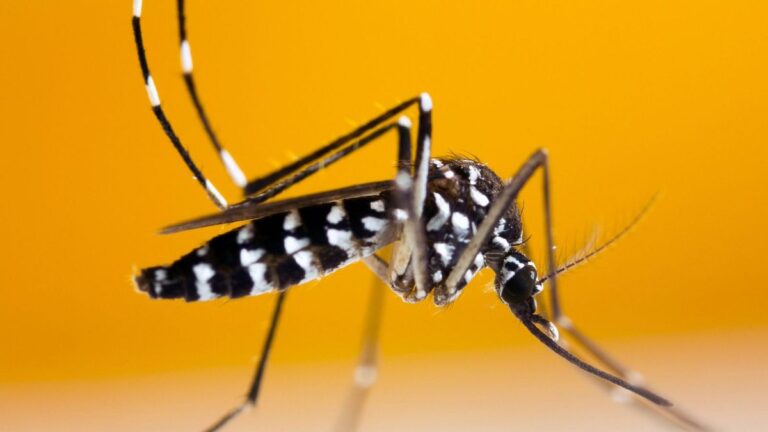Last year saw a surge in virus cases, both domestic and international. Here’s how to stay safe:
advertisement
While rising dengue cases across Europe aren’t exactly pleasant news ahead of the holidays, there are ways to reduce your risk of infection.
New data from the European Centre for Disease Prevention and Control (ECDC) shows a sharp increase in both locally transmitted and imported dengue cases last year as rising temperatures encouraged the spread of disease-carrying mosquitoes.
Climate change is making summer vacation plans more unpredictable, with airport flooding and heat waves becoming some of the biggest challenges tourists have to overcome.
Mosquitoes may seem like a minor nuisance, but these pesky insects are just another obstacle to a safe and enjoyable vacation that is being accelerated by climate change.
The dengue-carrying Aedes albopictus mosquito is currently established in 13 European countries: Austria, Bulgaria, Croatia, France, Germany, Greece, Hungary, Italy, Malta, Portugal, Romania, Slovenia and Spain – a list that includes many of the continent’s most popular holiday destinations.
Here’s what you need to know about the risks abroad and how to protect yourself.
What are the symptoms of dengue fever?
Most people infected with dengue fever experience no symptoms.
If infected, symptoms appear 4 to 10 days after exposure and last for 2 to 7 days.
Some of these symptoms can be flu-like, including a high fever, severe headache, pain behind the eyes, and muscle and joint pain.
In some cases, dengue symptoms are so severe that it has been nicknamed “bone-breaking fever.” For up to 5 percent of people, the disease can progress to a severe, potentially fatal, form.
Dengue fever is common in tropical regions of the world, including parts of Africa and Asia, Central and South America, the Caribbean, the Pacific Islands, and parts of southern North America.
More information on geographic hotspots can be found here.
How can I protect myself from mosquitoes?
There are simple protective measures that individuals can take to reduce the risk of mosquito bites while abroad.
This includes covering yourself with ideally light-coloured clothing, as dark materials tend to attract mosquitoes. Using a mosquito repellent is a must – we recommend ones that contain DEET, IR3535 or Icaridin rather than those that are essential oil-based.
Although mosquitoes that carry the dengue virus bite during the day, it’s also worth taking precautions at night.
The EDCD recommends using mosquito nets and screens on windows and doors, and sleeping in an air-conditioned room – powerful fans can disorient the insects, making it difficult for them to land.
Mosquitoes breed in stagnant water, so don’t give them a chance to breed – even a bottle cap full of water is enough for mosquito larvae to develop – so tidy up as much as possible and keep an eye on the gardens and balconies of wherever you’re staying.

